Activism

Various activist campaigns have engendered cross-border support, from equal rights for marginalised communities to action against climate change, and many more.
Rights and Equality
On 22 May 1971, members of the Irish Women’s Liberation Movement travelled on the train from Dublin to Belfast to purchase contraceptives. This became known as the ‘contraceptive train’ and was in protest to the ban on the sale of contraceptives in the Republic of Ireland.
The movement for reproductive rights has received cross-border support. Before 2018, access to abortion was extremely limited across the island of Ireland, which caused many women to travel to Great Britain where it was more readily available. After the ‘Repeal the 8th’ Campaign overturned restrictions on abortion in 2018 in the Republic of Ireland, activists started ‘the North is Next’ campaign which advocated for more rights in Northern Ireland. Abortion was decriminalised and made lawful in Northern Ireland in 2019.
Activists have mounted cross-border campaigns to advocate for equal rights and better protections for LGBTQIA+ people. Recently, movements for marriage equality worked together across the island of Ireland, as well as within Great Britain to legalise same-sex marriage. Until 2015 and 2019, same-sex marriage was banned in the Republic of Ireland and Northern Ireland respectively.
Advocates for peace and reconciliation, both in Northern Ireland and around the world, have brought together communities across political and social boundaries. Additionally, objections to war and nuclear weapons have fostered links between people and organisations separated by borders.

‘Climate Change Knows No Borders’
Action against climate change has become increasingly global. Activists across the United Kingdom and Ireland have worked together to preserve shared natural resources, address cross-border pollution, and advocate for coordinated climate policies.






